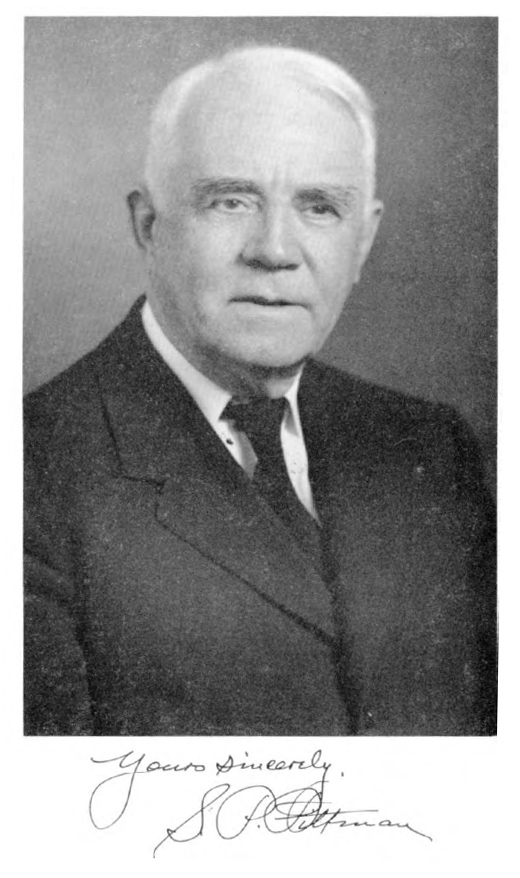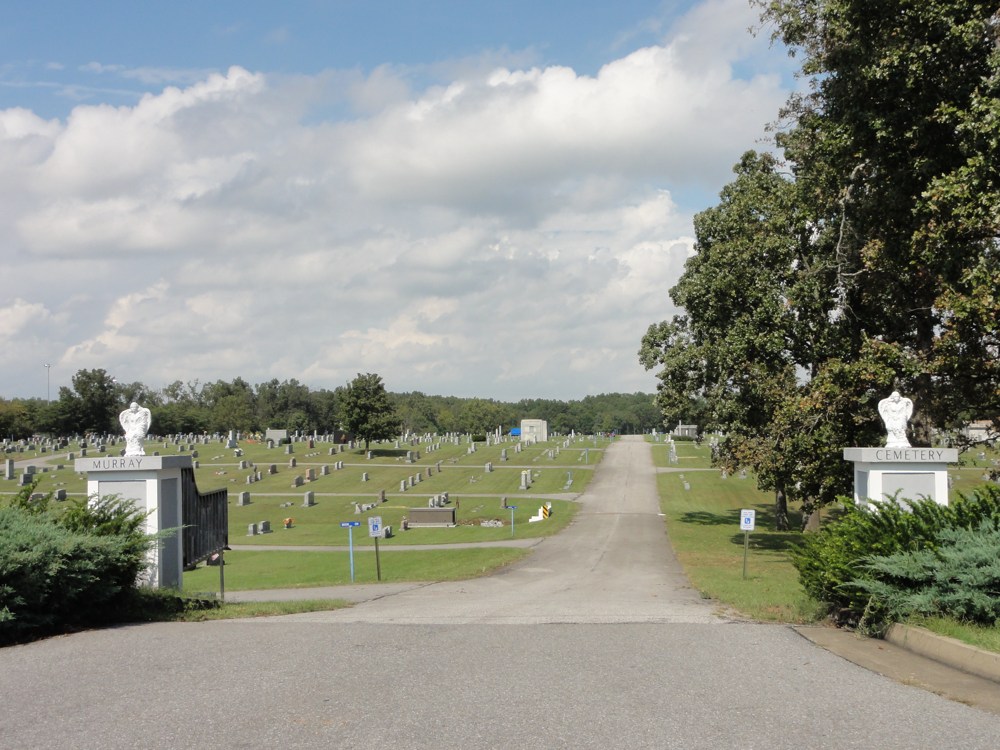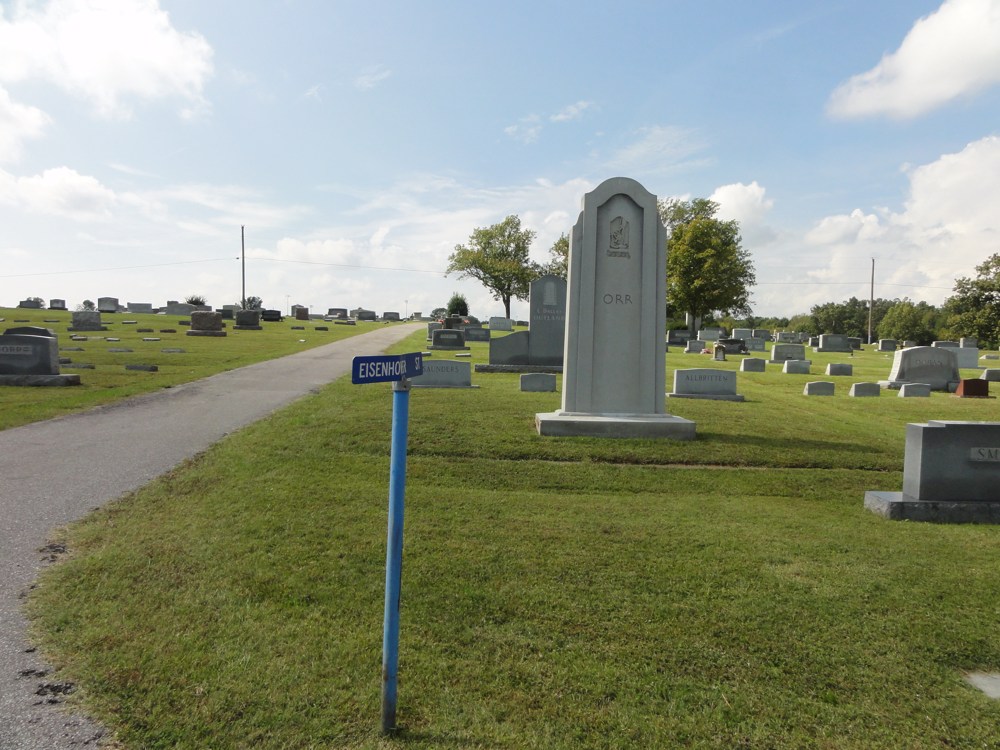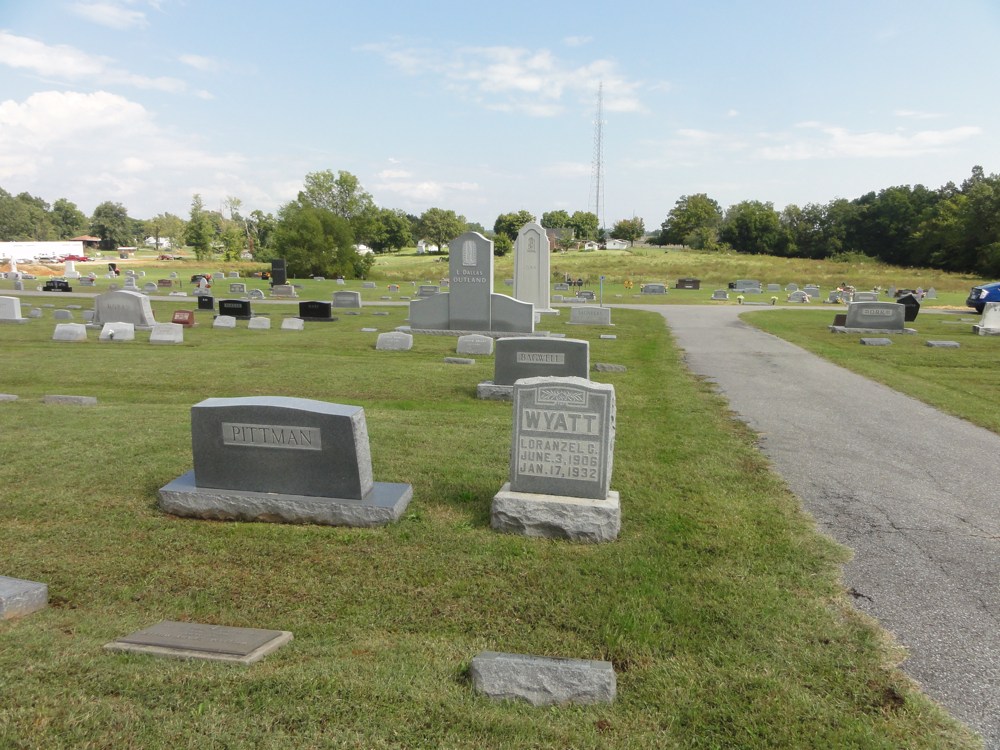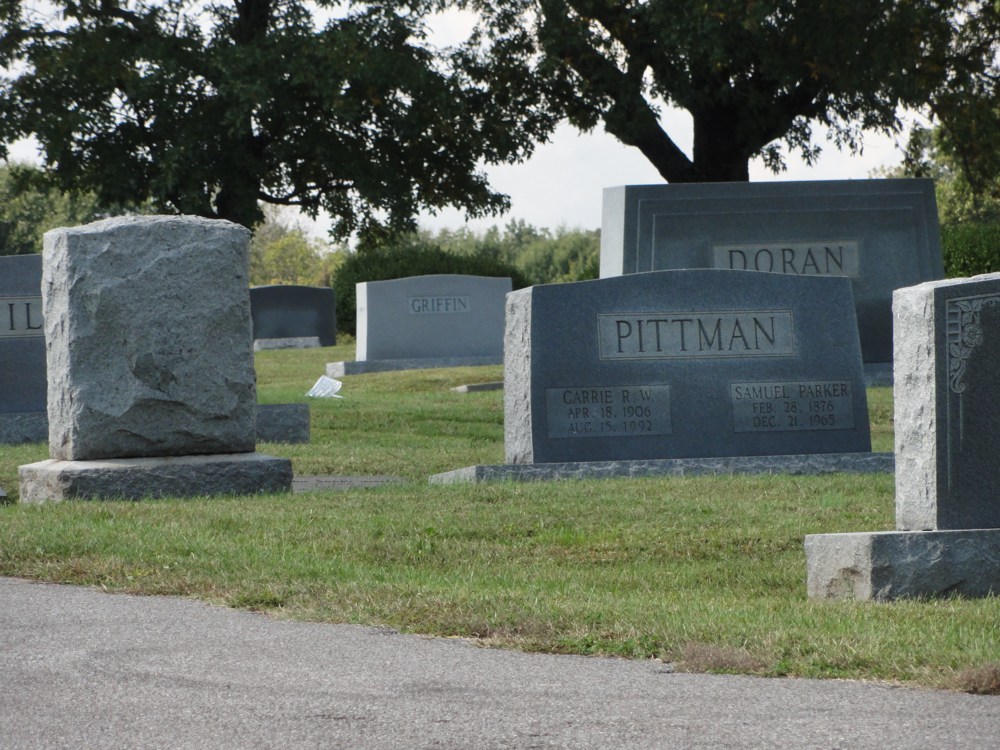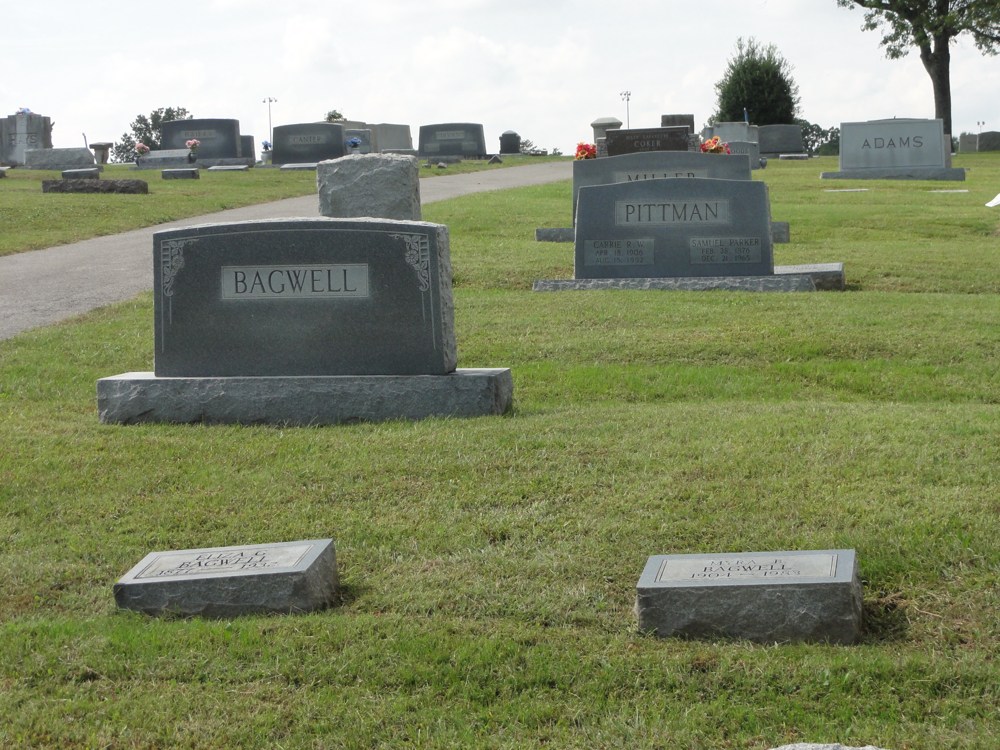Samuel Parker Pittman
1876-1965
![]()
Samuel Parker Pittman, Man Unique
In 1954 about four-hundred friends assembled in a banquet room in the Maxviell House in Nashville to honor a man who, they thought, might be nearing the end of his way. The occasion was the 79th birthday of Samuel Parker Pittman. The friends were his friends and former students who had come from many parts of the country to pay tribute to one whom they loved. It had been in the mind of some of these friends to have such a celebration when Brother Pittman reached his 80th birthday. But knowing the uncertainty of life and fearing he might not live to see the fourscore mark they arranged the banquet a year earlier.
It was a wonderful occasion. Many testimonials of love and loyalty and long-sweet memories were given. Messages were read from others who could not be present. Brother Pittman enjoyed the evening very much, and responded to toasts in rare humor and ready repartee. As always he was reluctant to accept gifts, especially money.
In the months and years that followed he continued in good health, entering the sunset years with characteristic cheerfulness, and good will toward all men. He enjoyed his home and the frequent visitors who came to ''Pittman Place" to see him. (Perhaps he is the only humble gospel preacher to have a city street named for him.) We who were with him often marveled at his vitality and alertness. His mind was clear, his thoughts lucid, and his preaching was better than ever. His popularity seemed to increase. Frequent calls came for him to speak in Nashville churches and at the college. About a month before his death he held a meeting near Fayetteville.
Year followed year and we continued to mark February 28 as a special day, a red letter date on our calendars. Each year we gave him an honoring dinner and other remembrances. In 1965 on his 89th birthday the celebration was held at the Brentwood Hills church. At that time some expressed the hope of being present when the numerals of his age would be reversed and we could celebrate his 98th anniversary. It did not seem unthinkable that he might reach that near-century milestone. He was sick very little in his long life. He had a remarkable ability to resist "common colds." He said he did not believe in having colds; he thought they could be prevented by proper ventilation and deep breathing.
But the tenure of time is not guaranteed to any one. No one can forever be deaf to the tolling bell. Death working under cover stole a march on him. When we scarcely knew he was sick, shortly before he became ninety, Brother Pittman, "an old man and full of years" came to the terminus of a rich and righteous life.
On Saturday, December 18, he was taken to the hospital suffering with internal pains. Sunday he grew worse and passed into a coma. The doctors feared to, yet feared not to, operate. Something had to be done. Sunday night they took him to "surgery." They found his gall bladder in bad condition, gangrene had set in, with other complications. Pneumonia developed and the doctors told us Monday evening that he would not live through the night. Between two and three o'clock Tuesday morning, December 21, he "passed to where beyond these voices there is peace."
It was my privilege to be with him in the last hours, to stand at the foot of the bed and watch him breathe his last breath, so very, very quietly. Silently his spirit slipped out of "this tabernacle," to go and "dwell in the house of the Lord forever"-"the house not made with hands, eternal in the heavens." The words of Horatio came to mind, spoken at the death of Hamlet, "Now cracks a noble heart. Good night, sweet prince, and flights of angels sing thee to thy rest."
Funeral services were held Wednesday in the Granny White church auditorium, with many hundreds of friends attending. Sweet songs were sung beautifully by a quartet. The speakers were Charles Chumley, Bob Neil, Charles R. Brewer and E. H. Ijams. The body then was taken to Murray, Kentucky, Sister Pittman's home town. Thursday another service was held there. At first the plan was to have only a graveside prayer and committal but so many came to the funeral parlor that Sister Carrie decided to have a full funeral service. It appeared that she wanted her friends and former neighbors to know more about her beloved husband. Again Charles Chumley and the writer were the speakers. Then the saintly man was laid to rest near the grave of Sister Carrie's first husband, with space left between for her own final resting place. The service was closed with a prayer by Brother Wyatt, Sister Pittman's brother-in-law.
Samuel Parker Pittman was born on a farm in Haywood County, Tennessee, near Stanton and about thirteen miles from Brownsville, February 28, 1876. He was named Samuel for his maternal great-grandfather, Samuel Green. Later he gave himself the name Parker because of his fondness for a great-uncle and great-aunt, Mr. and Mrs. J. Page Parker. In 1883 the family moved to Paducah, Kentucky, where they lived for two years. While there young Sam attended an academy operated by the great-uncle from whom he assumed his middle name. He also studied vocal and piano music under Mrs. Parker, affectionately known as "Ankie." In 1885 his parents moved to Ocala, Florida. Professor Parker had also moved there and established another academy. Sam continued to study music under "Ankie." seven years longer. In the meantime the Nashville Bible School had been established by David Lipscomb and James A. Harding, who had baptized Sam during a meeting in Ocala in 1886. The school began in October 1891 and in March 1892 Sam's mother brought him and his brother Edwin to Nashville and entered them in the school. He studied Bible under David Lipscomb, Latin under William Lipscomb and Greek under Harding. After a year and a half in Nashville he returned to Florida and spent two years in preaching and private teaching. From 1895 to 1897 he was a student in Martyn School of Oratory, Washington, D. C. graduating with the Bachelor of Expression degree. Then at Harding's request he returned to teach in the Bible School. After twenty-seven years of continuous teaching he secured leave of absence to attend the University of Tennessee. While in Knoxville he preached for what was then the North Broadway church, now Laurel Avenue church. He graduated with the Bachelor of Arts degree June 8, 1927 and returned to David Lipscomb College where he continued to teach until his retirement in 1947.
On December 21, 1940 he was united in marriage to Mrs. Carrie Wyatt who was teaching Business Administration in the college. E. H. Ijams, president, officiated at the quiet wedding. Thereafter the stone house he had built just off the campus became a brighter spot, and for twenty-five years his whole life was made more ordered and peaceful by her companionship and loving care. His death came on their twenty-fifth anniversary.
Who can give a full appraisal of such a man as Samuel Parker Pittman. He was a man of the people, fitting in comfortably with common everyday folks. And yet he stood apart, different from every one else, he was the man unique. He was not like Hardeman who could win people to a strong loyalty, so much so that many imitated his very mannerisms; yet people loved Pittman with a warm sincere affection. He was not like Larimore before whom people sat spellbound, looking upon his benevolent face with awed and wondering gaze; yet they listened to Pittman with a sense of personal attachment, charmed by his resonant voice, and impressed with his innate honesty in thinking. He was not at Lipscomb before whom people stood in respectful silence and veneration; but they could approach Pittman with ease and speak freely without any feeling of inferiority. A person conversing with Brother Pittman could say to himself, "Here is one who thinks more of me than he does of astral exploration, he cares more about my family than he does about some bill that congressmen are trying to pass or defeat." There was the touch that made him everybody's kinsman. Very personal, warm and intimate was his friendship for every one whom he met.
Open your Bible to the chapters in Matthew he loved so well, "the sermon on the mount'' which he required all his pupils to memorize. Read again the beatitudes, the teaching about returning good for evil, about praying or giving to be seen of men, or "the golden rule," or about anxiety concerning food and raiment; then review the life and character of Brother Pittman and see in what a remarkable way he exemplified the principles set forth by the Master in this marvelous discourse. In him was "the kingdom of heaven" because he was "poor in spirit." His inheritance was great, because he was "meek." He "hungered for righteousness: This gave him an open mind; he was willing to receive truth through any channel. He would rather be right than "orthodox." He stood more for truth than for "party position." He obtained mercy, for he was indeed a merciful man. His is the blessed privilege of seeing God, because he was "pure in heart," few men are as pure and clean in thought as was Sam Pittman. He loved peace and endeavored to keep the bond of peace, therefore we may truly call him a "son of God." Did he "lay up treasures on earth"? Far from it! No man ever cared less for material wealth. It was actually humorous at times to hear his denunciation of money: "I don't believe in money. It is a bother; it distracts the mind; it makes enmity between people. I don't want it!!" And no one could doubt his honesty in such tirades. Frequently checks were found in some book or hidden away in some pocket-checks he had forgotten to cash. After his death Sister Pittman found several such checks among his papers, some of them six or eight months old. She sent them back to those who had written them. Surely Brother Pittman did not do things "to be seen of men." His left hand did not know what his right hand did. He himself was hardly aware that he was doing a "good deed." He certainly made no record of "righteous acts for the day." He did good because it was his nature to be good, and generous and kind. In two pictures that Jesus gives of the judgment we see two distinct classes of people. In the one are those who are bold to remind the Lord of their fine record of pious achievements. "We have done many mighty works," they say. But the Lord will answer, "I never knew you: depart from me." Those in the other group will say, "Lord, when?" in answer to his commendation for their acts of kindness and merciful ministry. To them he will say, "Come, ye blessed of my Father." Those who knew Sam Pittman will raise no question as to the class in which he belongs. His life was full of "little daily, unremembered acts of kindness and of love" which Wordsworth calls the "best portion of a good man's life."
No man is perfect. Without doubt Brother Pittman had his faults. Some of his ideas were hardly practicable. If his way of thinking were accepted universally we would have to reconstruct the whole economy of the world and government. But, "take him for all in all, I shall not look upon his like again." The man unique. I never expect to see a purer, nobler, kindlier man. "His life was gentle, and the elements so mixed in him, that Nature might stand up and say to all the world, "This was a man!"
No farther seek his merits to disclose,
Or draw his frailties from their dread abode,
(There they alike in trembling hope repose)
The bosom of his Father and his God.
-Charles R. Brewer, Gospel Advocate, January 27, 1966, pages 52,53
![]()
*Excerpt From "The Passing Of Three Great Men"
Samuel P. Pittman was my beloved teacher at David Lipscomb College during the presidency of the late Batsell Baxter, along with other great teachers, such as Hall L. Calhoun, E. H. Ijams, H. Leo Boles, R. C. Bell, Charles R. Brewer. What a galaxy of Bible teachers for a young preacher to study under!
Brother Pittman was the symbol of David Lipscomb College to us all. Among its first students, and a teacher through most of its years of existence until his retirement, his life was a bridge between David Lipscomb and James A. Harding and our generation. He has been an inspiration to so many people who studied in his classes and listened to his preaching. A gifted orator, he used words to paint some of the most impressive pictures I have ever seen. His chapel talks were gems. The unusual approaches he took to Bible subjects made his preaching always original and interesting. He taught me that there were no insignificent words in the Bible. He was a true student of the Word, a lover of the Book who wanted to know what the Word said, not what some of our brethren may have thought it said. How we need that emphasis in every age! It is so easy to substitute the tradition and words of men for God's word. Last summer during a meeting at Grace Avenue church in Nashville I had my last visit with him. His remarkable memory for events and people's names was evident once more as we talked. When our farewells were said he walked away escorting his lovely wife with the abile step of one far younger than he. I remarked as I saw him walking toward his car, "What a remarkable man!" I shall remember him as one who thought so little. of self and served unselfishly so many. He cared little for material things; human values and the spiritual were the most important for S. P. Pittman. His high standards of academic work made us strive toward the best. From every visit with him I came away an enriched person. Even his eccentricities endeared him to us. We shall miss his deep resonant voice, his wonderful memory, his expressive face, his powerful lessons that always left us with a new understanding of God's truth, and a greater love for it.
The places of these three great men of God cannot be filled. The world and the church cannot be the same without them. The burden of responsibility seems greater upon us with their passing. We pause to pay them our tribute of praise and appreciation and learn more clearly the meaning of the saying, "Precious in the sight of the Lord is the death of his saints."
-Frank Pack, Gospel Advocate, January 13, 1966, p.18,22,23
*Note: This article was written after the passing of three great preachers in the Restoration Movement, N.B. Hardeman, Horace W. Busby and Samuel P. Pittman. The Pittman section of the article is reproduced here.
![]()
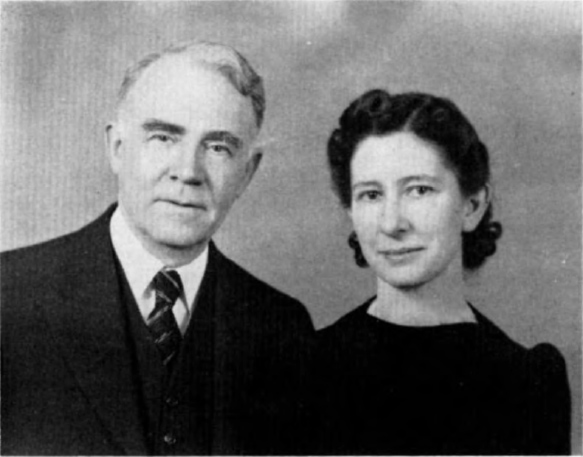
Wedding Photo Of Samuel Parker And Carrie R. Wyatt Pittman December 21, 1940
![]()
Directions To The Grave of Samuel P. Pittman
S.P. Pittman is buried in the Murray Cemetery in Murray,Kentucky. In West Tennessee, take I-40 to Exit 126. Take Hwy. 641 north through Paris, Tennessee into Kentucky. When coming into Murray, on Highway 641, turn east on Chestnut Street (641 Bus) and go three blocks. Beale Street should be to the right, and City Cemetery Street to the left. Enter the last entrance on Seventh St. Head toward the rear of the cemetery and turn right at the 3rd street to the right, Eisenhower St. The Pittman plot will be on the left. While in the cemetery be sure to visit the graves of Restoration preachers, Coleman Overby and Sam Henry Hargis. His plot is in the section to the left of the one in which the Pittmans are buried.
GPS Location
36.620343,-88.305343
View Larger Map
![]()

PITTMAN
Carrie R.W. - April 18, 1906 - August 15, 1992
Samuel Parker - February 28, 1876 - December 21, 1965
![]()
Photos Taken 10.04.2013
Page Produced 11.28.2013
Courtesy of Scott Harp
www.TheRestorationMovement.com
![]()
